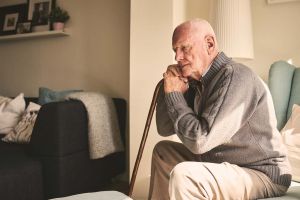Depression in Special Situations
Depression in
Special Situations
What you need to know about
Depression in Special Situations
It’s critical to learn more about depression in unique circumstances. Depression in men, depression in women, depression in the elderly, and treatment-resistant depression are examples of these conditions. Depression may manifest differently in each of these scenarios, with varied signs and symptoms, causes, and treatments.
What Is Depression?
Depression is a serious and widespread mental disease characterised by feelings of despair, helplessness, and worthlessness. Apathy, a lack of food, difficulties sleeping, low self-esteem, and low-grade weariness are all signs of depression, which can range from mild to moderate. It could also be serious depression, which manifests itself as a melancholy mood for the most of the day, a loss of interest in everyday activities, weight loss or gain, insomnia or hypersomnia (sleeping too much), exhaustion, guilt on a regular basis, and repeated thoughts of death or suicide.
How Common Is Depression in Men?
In England, one in every eight males has a common mental health problem such as depression, anxiety, panic disorder, or obsessive-compulsive disorder, despite the fact that men rarely identify or accept their own symptoms of sadness (OCD). Depression was long considered a “woman’s sickness,” with hormones and premenstrual syndrome being linked to it. This conventional image persists, and it may be what prevents men suffering from depression from identifying it and seeking help.
Clinical depression in men has symptoms that are similar to depression in women. Men, on the other hand, tend to express their symptoms differently. Men’s depression symptoms include the following:
- Apathy
- Changes in appetite
- Fatigue
- Loss of interest in usually pleasurable activities,
- Low self-esteem
- Sexual problems, including reduced sex drive
- Sleep disturbances
- Suicidal thoughts
When women are depressed, they are often unhappy and emotional. Depressed men, on the other hand, can be irritable, aggressive, and even hostile.
See Pure Medical’s Depression in Men for more details.
Is Clinical Depression Common in Women?
Yes. Women’s depression is fairly frequent. Between 10 and 25% of women will suffer from significant or clinical depression at some point in their lives. Women are twice as likely as males to experience depression.
Women’s depression differs from men’s depression in various ways:
- Women’s depression can start earlier, continue longer, and repeat more frequently than men’s depression.
- Women are more likely than males to be affected by stressful life events and to be sensitive to seasonal variations.
- Women are more prone than men to feel guilty and attempt suicide, even if they kill themselves less frequently.
- Anxiety disorders, particularly panic and phobic symptoms, and eating disorders are more commonly connected with depression in women.
- Women who are depressed are less likely to consume alcohol or other drugs.
See Pure Medical’s Depression in Women for more information.
How Does Depression Affect the Elderly?
Depression is fairly frequent in the elderly, but it is not a normal aspect of ageing. Around 6 million people aged 65 and up suffer from late-life depression in the UK. Unfortunately, only 15% of people with depression are able to obtain therapy. One possible explanation is that symptoms of sadness in the elderly are frequently confused with the consequences of several ailments and medications used to treat them.
Depression often coexists with other medical conditions and disabilities in later life. Furthermore, advancing age is frequently accompanied by the loss of important social support networks, such as a spouse or siblings, retirement, or relocation. Doctors and family members may overlook the diagnosis of depression in the elderly due to their changing circumstances and the expectation that they will slow down. As a result, effective treatment is delayed. As a result, many elders are forced to deal with problems that may be remedied easily.
See Pure Medical’s Depression in the Elderly for further information.
What Is Treatment-Resistant Depression?
Depression symptoms that do not respond to medicine or psychotherapy are referred to as a treatment-resistant depression. According to the current statistics, 30% of depressed patients in primary care have no response to antidepressant therapy. While 40% of people react to the first antidepressant medication they try, roughly 20% of these patients cease taking it due to negative effects.
Men and women with treatment-resistant depression may have tried a number of medications, including antidepressants of various sorts, as well as psychotherapy and other treatments. Despite this, no medication appears to be effective in alleviating their despair.
You may feel hopeless and irritated if you have treatment-resistant depression, also known as refractory depression. Don’t give up, though. There are other therapy choices available, and the one you require is most certainly one of them. You should be able to find it if you and your doctor work together.
See Pure Medical’s Treatment-Resistant Depression for more details.


